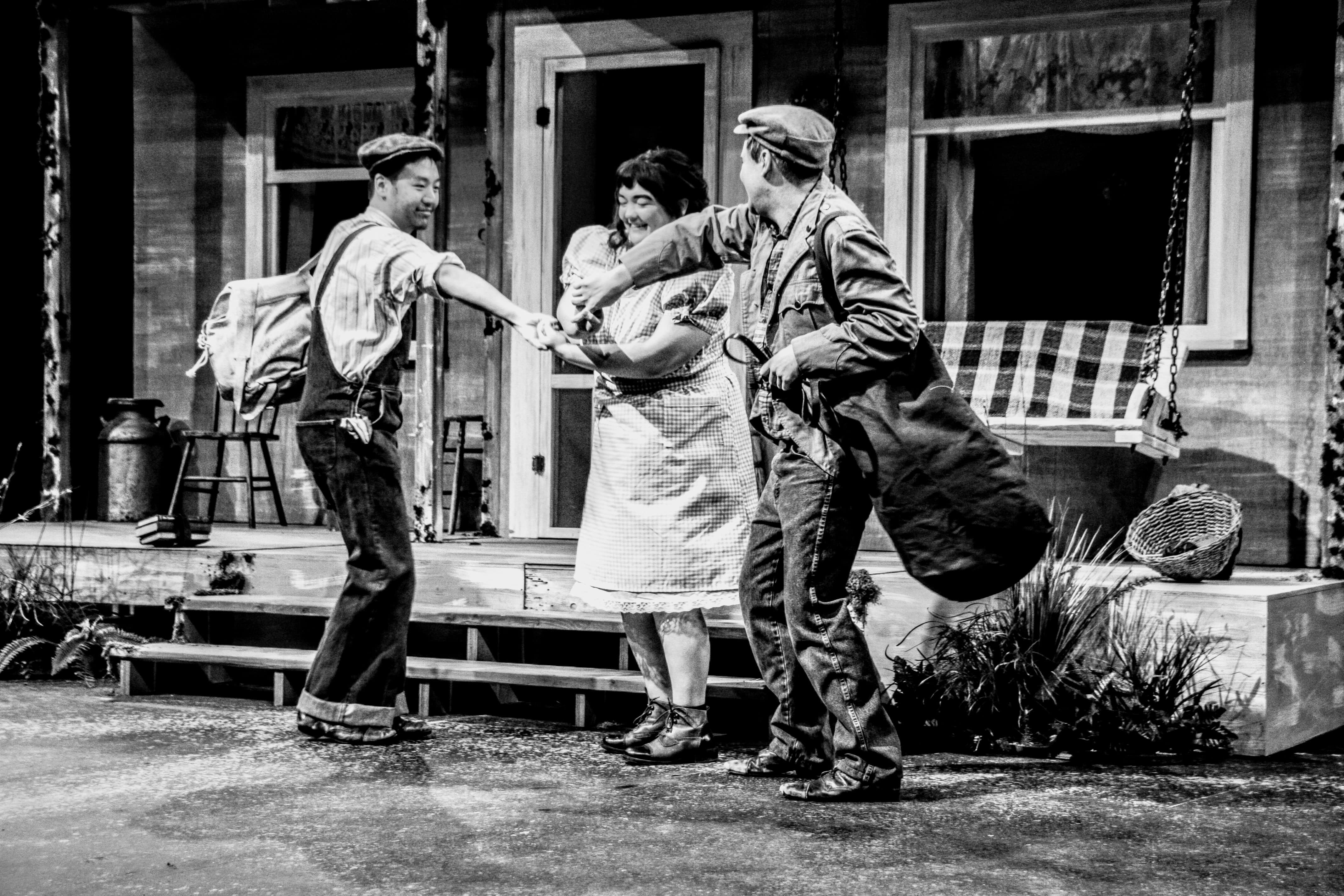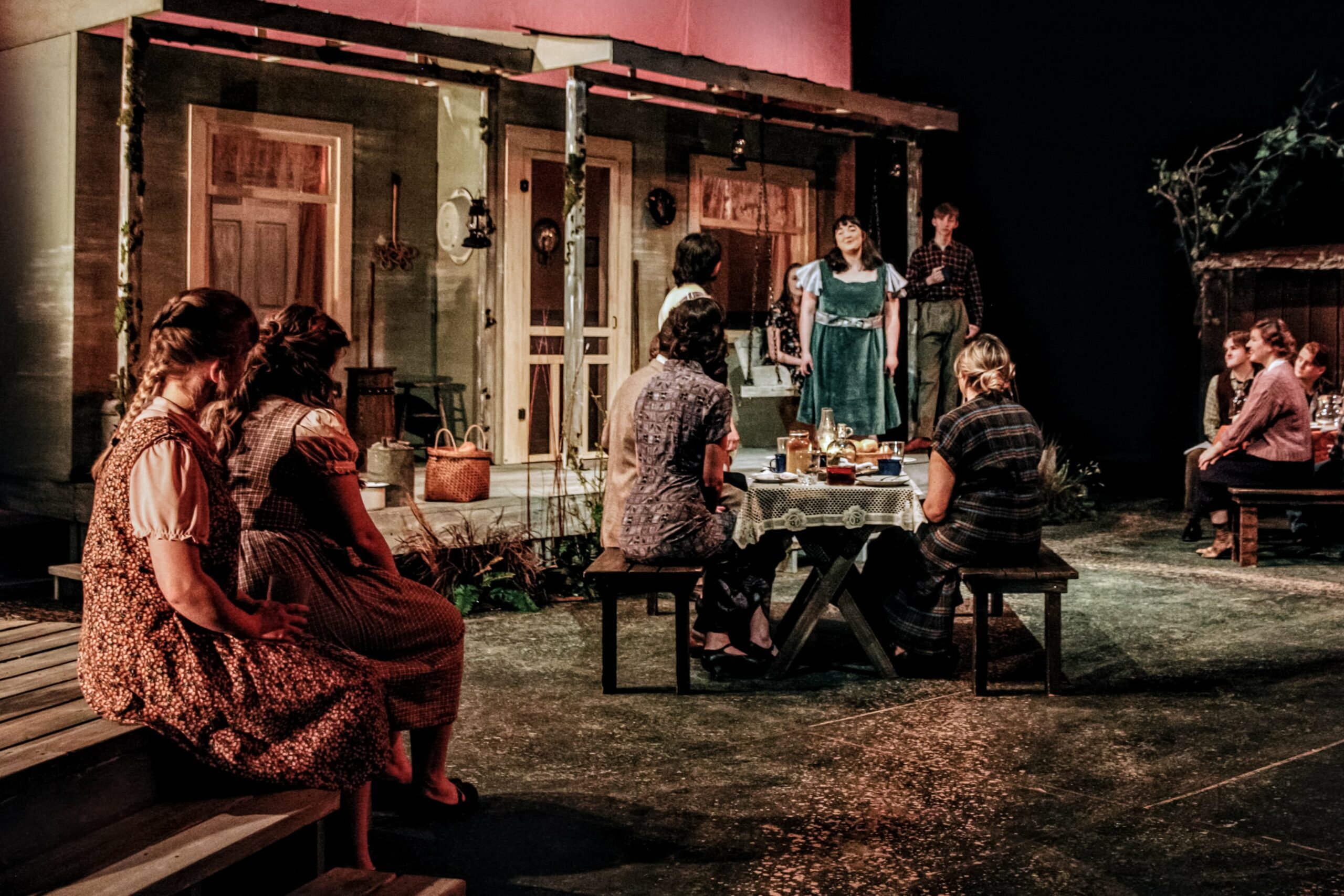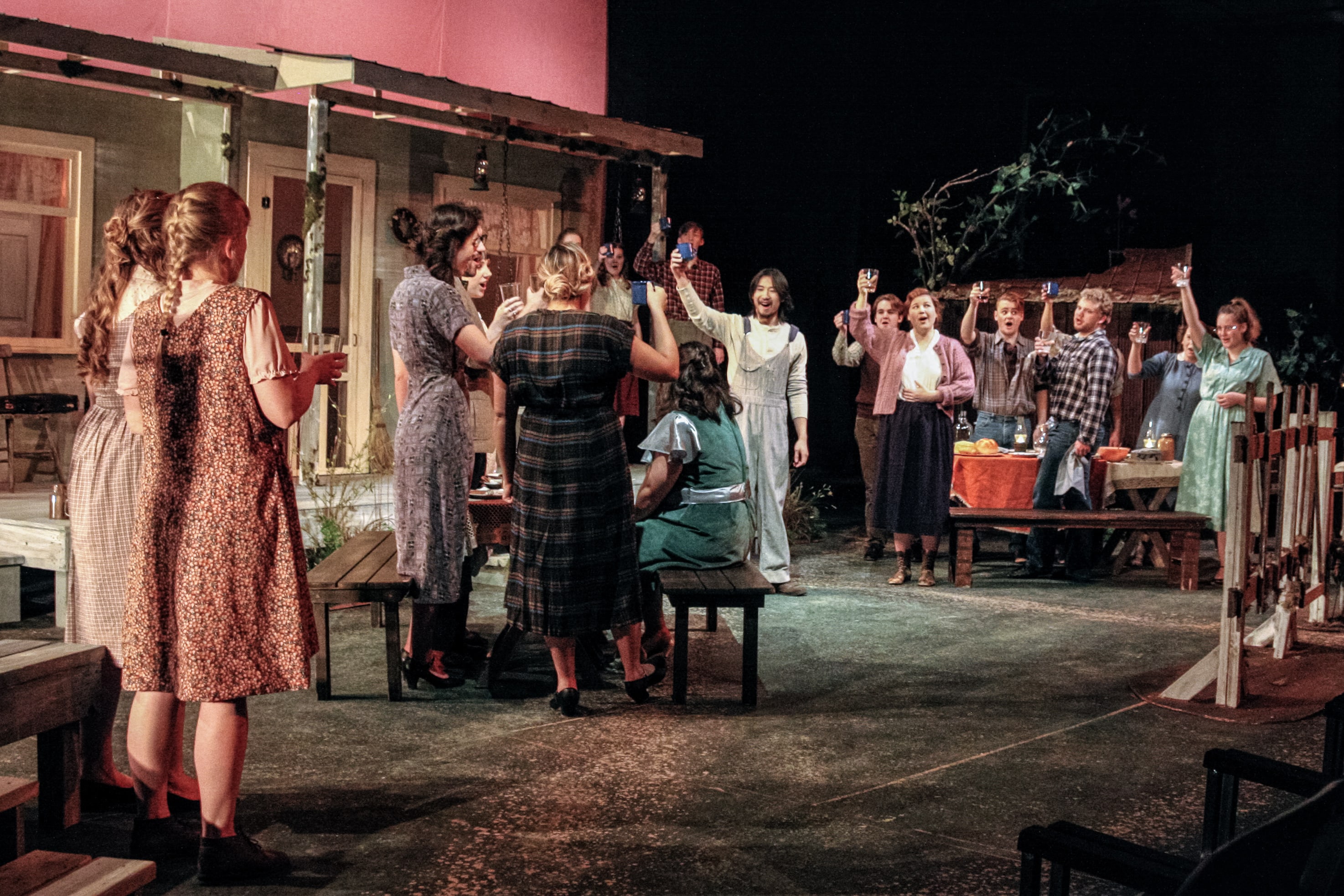Aaron Copland’s 1954 opera The Tender Land was given a strong and stylistically-astute presentation in this spring’s production by Wilfrid Laurier University’s Faculty of Music Opera Program. This far-too-rarely performed work is a simple ‘coming-of-age story,’ set in the Great Depression’s American Midwest.
The Tender Land tailor-made for emerging artists
Following its initial productions at New York City Opera and the Tanglewood Festival, The Tender Land has largely become the domain of university and advanced training programs—and for good reason. The piece, though challenging in its music idiom, offers a wide range of roles of varying degree of vocal and dramatic demands. Four and five-year programs for young singers, by their nature, are populated by artists of evolving skill sets, making Copland’s work not only a mature and serious representation of mid 20th-century American music-theatre, but also a wonderful vehicle through which to nurture aspiring young performers at varying levels of development.
Such was case in Laurier’s production, spotlighting the talents of two of its senior students—soprano Midori Marsh as Laurie, the sheltered victim of depression-era farming culture, and tenor River Guard, as the itinerant harvest hand Martin. Both young singers, exuding absolute confidence in their considerable vocal and musical abilities, were free to successfully explore more deeply the demanding dramatic nuances of their roles. Marsh and Guard both possess fine, full-sized lyric voices which soared throughout the full range of Copland’s writing. Their voices were well-matched—both demonstrating a bright lyricism, admirable dynamic control, impeccable diction and innate musicianship.
These artists were supported by a strong, if slightly less-experienced cast of peers—Elvin Do as Grandpa Moss, Mike Fan as Top, Samantha Rowlandson-O’Hara as Ma Moss and Madeleine Levesque as Beth Moss. The cast was rounded out with equally enthusiastic and engaged young artists to whom Copland gave both short solo turns and major chorus responsibility in Act II.
Clean, effective stage direction by Anna Theodosakis
Stage Director Anna Theodosakis deserves much credit for the success of this production, especially her ability to match the simplicity and earthiness of Copland’s score. Her direction was clean and uncluttered and she allowed her artists’ facial and body language to convey much of the drama. Her realization of the drama addressed the conflicting emotions of its characters—love, longing, fear and ultimately, great personal strength. Theodosakis was greatly assisted in her task by Set Designer James Bolton, whose single-unit set depicting house facade, porch and yard comfortably facilitated all of the opera’s staging requirements. Wesley McKenzie’s lighting design contributed an attractive and appropriately moody environment, effectively depicting the passage of time.

Mike Fan (Top), Midori Marsh (Laurie Moss) and River Guard (Martin) in Wilfrid Laurier University’s The Tender Land. Photo: Marie Levesque
Challenging score of The Tender Land strongly played
Conductor Leslie De’Ath led the thirteen-piece student ensemble through Copland’s score in a well-paced and stylish reading. The orchestration is very much in the composer’s ‘populist’ mode, and in fact the instrumentation, reduced to thirteen players for the Tanglewood production in the summer of 1954, mirrors the ensembles in his trilogy of ballets, Billy the Kid, Rodeo and Appalachian Spring. The ensemble asserted itself admirably, particularly given the work’s modern mode and the difficulty and weight of the small string section’s contributions. Without a traditional orchestra pit, the conductor and ensemble were placed to the side of the stage, impacting direct contact with the singers and causing occasional balance concerns—issues that were dealt with quickly and almost indiscernibly.
All in all, this was a very successful and well-received production for WLU’s Opera Program, both for its quality as pure entertainment, but perhaps even more importantly, for its unique ability to offer opportunities to young artists at various points in the development of their creative skills.











